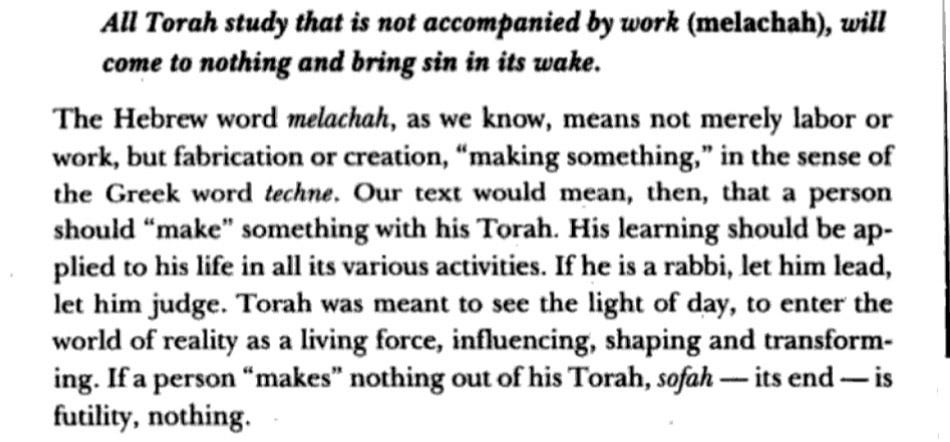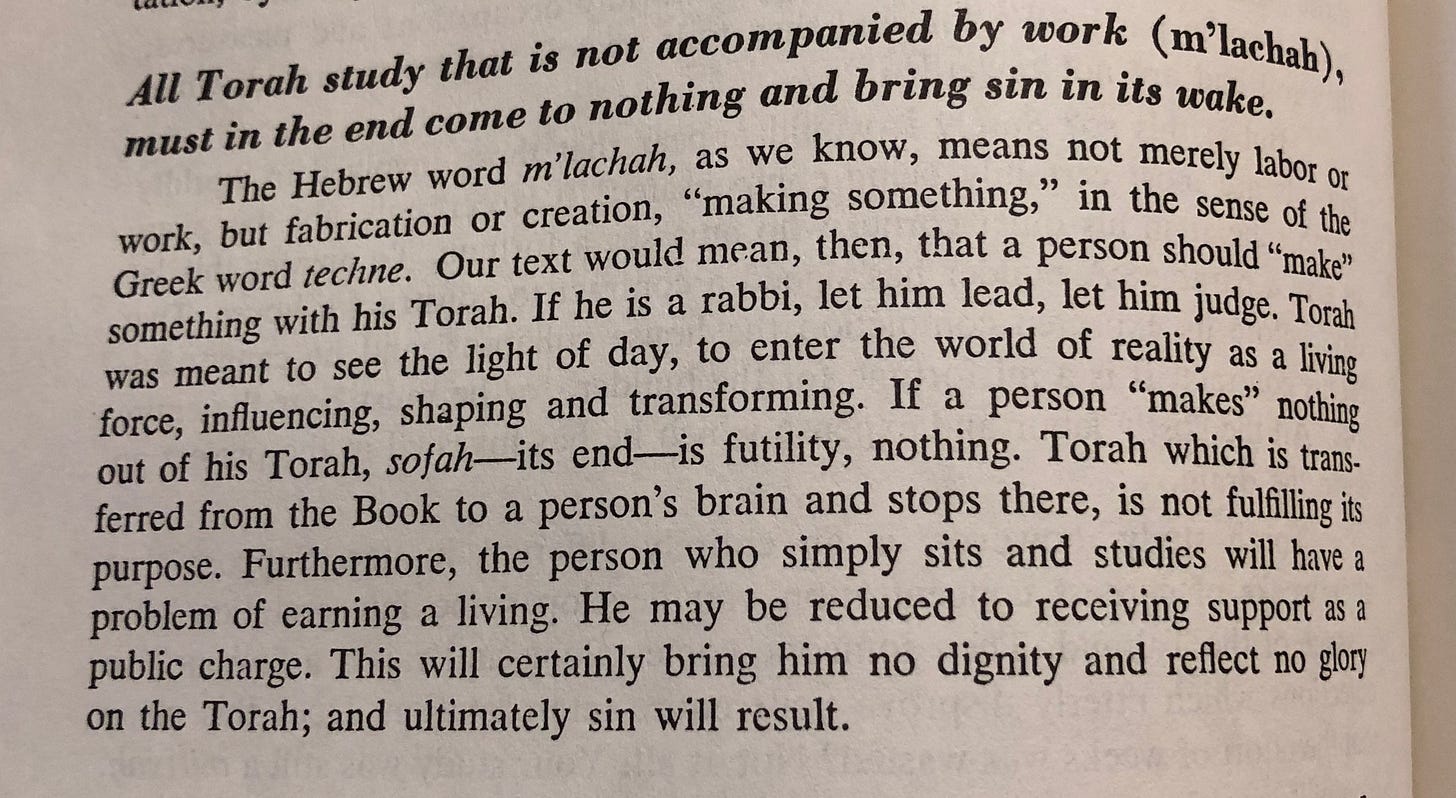Torah without Work
How a teaching of Chazal was erased from Judaism
It’s commonly stated that Orthodox Judaism believes in being loyal to Chazal’s teachings, whereas other denominations reject whatever they don’t like. Unfortunately that’s not true; in many parts of Orthodox Jewish society, while they pay lip service to the idea of being loyal to Chazal’s teachings, in practice they simply ignore that which they don’t like. One example is the following Mishnah in Pirkei Avot:
רַבָּן גַּמְלִיאֵל בְּנוֹ שֶׁל רַבִּי יְהוּדָה הַנָּשִׂיא אוֹמֵר, יָפֶה תַלְמוּד תּוֹרָה עִם דֶּרֶךְ אֶרֶץ, שֶׁיְּגִיעַת שְׁנֵיהֶם מְשַׁכַּחַת עָוֹן. וְכָל תּוֹרָה שֶׁאֵין עִמָּהּ מְלָאכָה, סוֹפָהּ בְּטֵלָה וְגוֹרֶרֶת עָוֹן.
“…Wonderful is the study of the Torah when combined with derech eretz, for toil in them both keeps sin out of one’s mind. And Torah which is not combined with work, in the end comes to be neglected and becomes the cause of sin.” (Avot 2:2)
I came across a creative explanation of this Mishnah in which “work” (melachah) does not actually refer to work in the conventional sense. Irving Bunim, in his legendary commentary Ethics From Sinai, explains that it refers to melacha in the sense of creation, and it refers to creating something with Torah:
“…A person should “make” something with his Torah. His learning should be applied to his life in all its various activities. If he is a rabbi, let him lead, let him judge. Torah was meant to see the light of day, to enter the world of reality as a living force, influencing, shaping and transforming.”
Now, Bunim’s interpretation is certainly a valuable and correct insight into what Torah study should accomplish. Torah is not just about learning in the contemporary Torah Lishmah practice of sitting in kollel for years on end, with the study of Gemara serving merely to sharpen one’s mind and to allegedly create metaphysical energy. It’s supposed to actually change a person and society.
But is this what the Mishnah is saying here? Surely not. Certainly this phrase is related to the previous phrase, and refers to work in the conventional sense.
But here’s where it gets really interesting. In the new 2002 edition of Ethics from Sinai, the above is what is quoted:
But if you check out the original 1964 edition, there are some crucial additional sentences which were censored from the new edition!
“Furthermore, the person who simply sits and studies will have a problem of earning a living. He may be reduced to receiving support as a public charge. This will certainly bring him no dignity and reflect no glory on the Torah; and ultimately sin will result.”
This is, of course, the plain and clear meaning of the Mishnah, and the traditional interpretation. But it was deleted from Bunim’s treasured work, because such things have no place in certain circles today.
(Thanks to Robert Levene for drawing my attention to this.)





It seems like an obvious shaila of genaivas daas to publish a work where the editor purposely changes what the author actually wrote.
This is not only Chazal, it's also a very straightforwardly, simply-stated halacha in Shulchan Aruch, placed right after the halachos of shacharis (Orach Chaim 156): https://www.sefaria.org/Shulchan_Arukh%2C_Orach_Chayim.156?lang=bi
"After [completing shachris] he should go to his work, because all torah that is not joined with work ends up falling apart and brings about sin..."
From the context in Shulchan Aruch we can also infer that the reference is to common-sense, good, old-fashioned work.